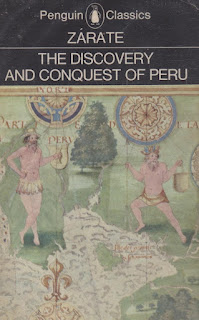 Longbourn by Jo Baker
Longbourn by Jo BakerI think of the enthusiasm with which I took up this book and the way I finished reading the same. I have to admit that there is none of that enthusiasm left. But that is not because the book is bad or anything, just that the expectations were wrong.
Pride and Prejudice - remains very close to heart, even after multiple readings of the same , watching it multiple times in multiple versions of art - and that is the primary reason I picked up this novel. The expectation that somehow there will be an additional insight into the household of Longbourn and the lead characters of the novel. To tell the truth, there is none.
Half way through I realized that I should shed some of those expectations and should read it as a separate work of fiction and that actually helped. It worked much better as a stand-alone novel than as any kind of accompaniment to Pride and Prejudice.
The novel tells the story of Sarah, the maid to Elizabeth Bennet and part of the kitchen staff at Longbourn. Her love story with James, the stable lad, forms the crux of the story with some additional characters and their trials in life comes forth - especially Mrs. Hill.
None of the characters from Pride and Prejudice make any sort of meaningful appearance here except Wickham, who brings his villainy to the kitchen as well. This results in the separation of the lovers and after much trials, the story ends in a happy note.
The novel is thought provoking in following the lives of the servants - who seem to be more indentured than voluntarily taking up the work - and seem to be making so little to go with in life. There is no way forward, though they may be a little literate - there is not much going for them. The class system in England is shown for what it was, a crude way to keep people down which took another 100 years to undo.
Sarah, for a girl living that age, seems to be thinking very modernly and that does not surprise me. I believe women tend to think better than men and in also trying to get better in life while men tend to accept life for what it is. Some of her thoughts really border on revolutionary terms - but I think it is possible. Her thoughts about carrying the chamber-pots or menstruation or the inequality between the girls in the household and kitchen - are all possible for anyone who can look around and think. If Lizzie is the quintessential Feminist of the original, Sarah is the proto-revolutionary here.
 |
| Because I liked this picture |
"Work was not a cure: it never had been. It simply grew a skin on despair and crusted over it"
The writing style, unlike Jane Austen's, is very different and has less conversations and more in the way of flow of the consciousness. This becomes tedious at times and if not for the excellent background with details on life as it was lived then, it would've been boring as well. And when Mrs.Hill thinks the above - in the context of Sarah trying to immerse herself in work to get over James - the entire flow of that thought becomes prose of excellent worth. There are moments like this across the book.
"Perhaps it was not an easy thing, to be entirely so happy. "
Perhaps it was. Elizabeth , as Mrs. Darcy, gives over to thoughts like this - but what was indigestible was the girl we knew as someone romping over mud and rain being transformed into someone valuing external appearances so much after marriage. That didn't gel well with the original. Darcy appears once and Bingley never.
Overall, if you read the book as an independent novel, it is a good read. Having any other intention will probably ruin the experience.

No comments:
Post a Comment